
A large percentage of individuals with a documented allergy to penicillin can actually be treated safely with this class of antibiotics. It just requires careful evaluation and management on the part of health care providers.

A large percentage of individuals with a documented allergy to penicillin can actually be treated safely with this class of antibiotics. It just requires careful evaluation and management on the part of health care providers.

In a new study, Michigan State University investigators identified an immune receptor, SLAMF7, that had the ability to decrease immune response when activated on monocytes.

While young people with enteric infections have the lion’s share of symptoms, the elderly suffer higher rates of complications and hospitalizations from these illnesses. Arriving at a correct, timely diagnosis for this cohort of patients is key.

A new analysis reports that 1 in 4 infants with bronchiolitis was given an antibiotic despite the fact that 70% of patients did not meet prescribing recommendations set by the American Academy of Pediatrics.

A new test can detect Plasmodium falciparum gametocyte carriers in saliva samples, providing a point-of-need rapid diagnostic test for malaria.

CDC has released mid-season estimates indicating approximately 84,000 Americans have been hospitalized for the influenza so far this season.

FDA has granted Fast Track designation for ACX-362E, an investigational new treatment for C diff that is being developed by Acurx Pharmaceuticals, LLC.

Health care providers in the US should be aware of an outbreak of an antibiotic-resistant strain of Pseudomonas aeruginosa at a Mexico hospital where US residents frequently undergo invasive medical procedures.

Program supported by Atrium Health and Heineman Foundation looks to educate local physicians on proper prescribing, stewardship.

Better rates of overall survival were seen when patients received granulocyte transfusions within 7 days of neutropenic sepsis.
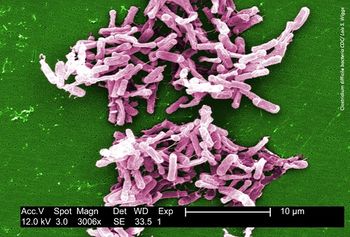
To explore the long-term outcomes of treatment for recurrent C diff, NIAID has launched a new trial that will follow patients for 4 years to assess the safety of fecal microbiota transplants.

Focus group-based study reveals challenges in travel medicine among US-based visitors to the region.

New evidence suggests that use of certain opioids may increase the risk of developing pneumonia, particularly in patients with HIV.

Mutual of Omaha will no longer deny coverage to individuals using PrEP for HIV prevention following allegations of discrimination in 2 separate legal settlements.

The FDA has approved extended use of the Tdap vaccine for repeat vaccination 8 years or more after the first vaccination to help protect against tetanus, diphtheria and pertussis.

A new survey highlights that treatment of patients with Staphylococcus aureus bacteremia varies among infectious disease physicians.

A large cohort study in South Korea found that human metapneumovirus associated pneumonia cases were strongly associated with older age, current smoking, and underlying disease.

Investigators in Canada link larger HIV reservoir sizes to a virus gene that is more functional in one subtype of the virus, with findings which may one day contribute to the development of an HIV cure.

A new method assessing the influenza A strain provides investigators with a more detailed look at influenza viruses.

We’ve rounded up a list of important US Food and Drug Administration (FDA) and US Department of Agriculture (USDA) recalls from this past week.
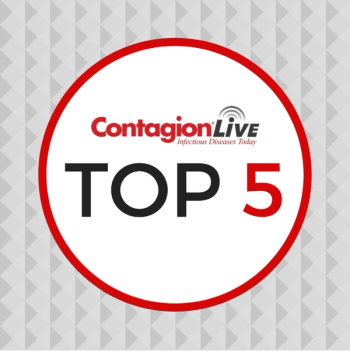
Stay up-to-date on the latest infectious disease news by checking out our top 5 articles of the week.

The FDA has approved the launch of the first in-human clinical trial evaluating the efficacy of a new synthetic DNA-encoded monoclonal antibody (DMAb) therapy to prevent Zika virus infection.
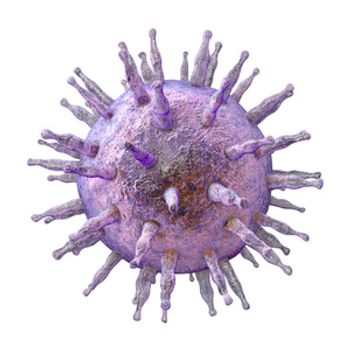
Individuals with schizophrenia exhibit an “unusual response” to proteins in the Epstein-Barr virus, the herpesvirus that causes mono, new research shows.

Between 2016 and 2018, Typhi infections susceptible only to azithromycin and carbapenems were identified in 5372 individuals in Pakistan and 5 children in the US following travel to Pakistan.

Even when men who have sex with men are aware of the risk of hepatitis C infection, they aren’t always confident in their ability to go against the expectations of their peer group.
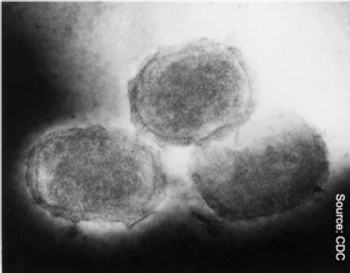
There is currently no FDA-approved treatment for molluscum contagiosum, but topline positive results from 2 phase 3 trials of an investigational drug look to be promising.

A new report shows improvement in some areas but a vast gap in US health care readiness still exists.

In 2017, lower respiratory tract infections linked with influenza were responsible for an estimated 145,000 deaths worldwide.
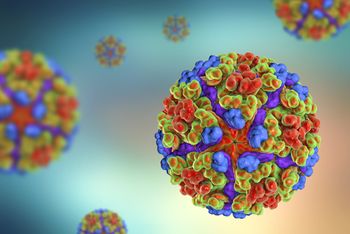
At Day 28, 100% seroconversion rate was achieved in a pooled analysis of all participants who received a single vaccination of VLA1553.

Investigators have identified and characterized Mengla virus, a filovirus that is genetically distinct from Ebola and Marburg viruses.